Femia > Health Library > Being a mom > Recovering from birth > Swollen feet after birth: When to worry?
Swollen feet after birth: When to worry?
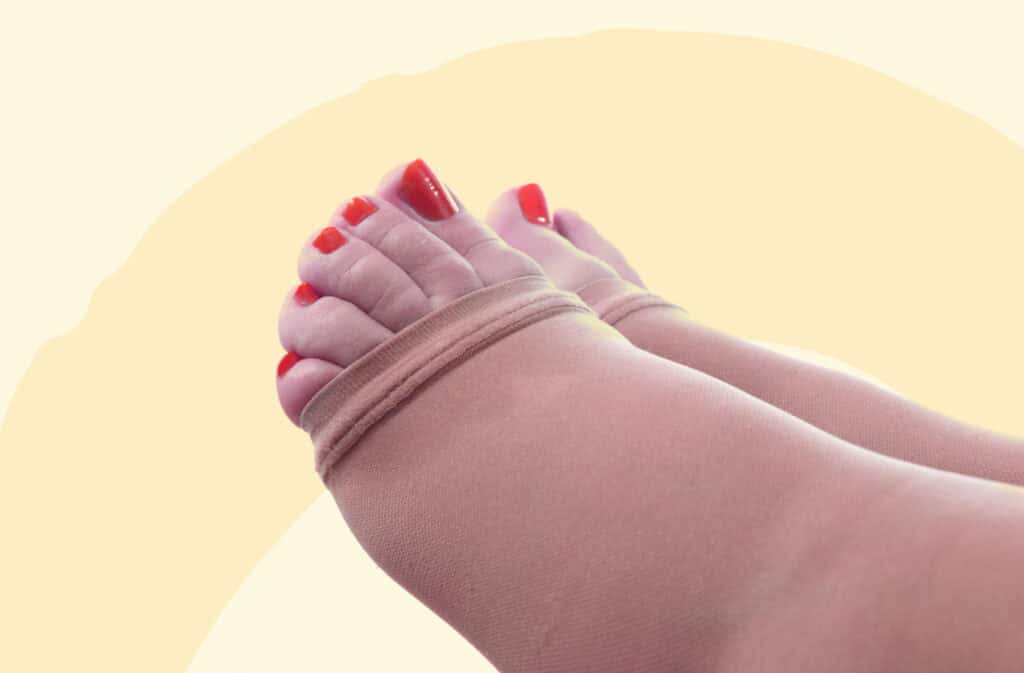
- Updated Feb 10, 2025
- Published
CRAFTED BY HUMAN
Crafted by human At Femia, we provide accurate and up-to-date information at every stage of your journey, from trying to conceive, pregnancy and postnatal support. All content is created by a real person based on in-depth research and own professional experience. Femia ensures that you will receive expert advice, strict accuracy and a personalized approach from our authors/medical experts. Learn more about our editorial policy.
FACT CHECKED
Fact checked At Femia Health, we maintain the highest standards of editorial excellence in delivering content focused on helping you conceive, guiding you through pregnancy, and supporting you postpartum. Explore our content review principles to learn how we ensure the accuracy and quality of our health and lifestyle tips for every stage of your journey.
Normal postpartum swelling includes mild swelling in the feet, legs, hands or face. It is common and gradually gets better in the first week or two.
Swelling that is sudden or severe, one-sided, or associated with pain, headaches, visual disturbance, or feeling generally unwell should be brought to your healthcare provider’s attention urgently.
Swelling of the feet, legs, hands, and even face is a common postpartum (after giving birth) symptom that many women experience. Postpartum swelling (also called edema) is mild and typically nothing to worry about. However, in rare cases, it can signal a more serious condition.
So, how do you know if your swelling is normal or something to worry about? Read on to find out everything you need to know about swelling after giving birth, why it happens, and when you should seek medical help.
Normal postpartum swelling
After giving birth, your body won’t instantly return to its pre-pregnancy state. While many of the uncomfortable pregnancy symptoms should start to fade, you will still need time to recover and adjust to all of the changes your body has been through.
During pregnancy, you retain extra fluid, and the amount of blood you have circulating increases by about 50%. This extra fluid helps to nourish and support you and your growing baby, but it can cause some swelling in your feet, legs, hands, and face. The good news is, it’s common and usually nothing to worry about.
after giving birth?
Femia helps new moms understand and manage postpartum symptoms
What else can cause swelling after giving birth?
Some other factors can also cause swelling after giving birth. For example, hormones, having a vaginal birth, and having a drip (fluids through a tube into your vein) during labor can contribute to postpartum swelling. After you give birth, your body still needs a bit of time to get rid of the extra fluid. Your kidneys will kick into overdrive to clear this excess fluid, and you might find yourself peeing and sweating more. Swelling should start to reduce soon after giving birth and disappear completely within one to two weeks.
Normal postpartum edema typically affects both sides of the body, improves gradually after giving birth, is mild, and resolves within the first week or two. It shouldn’t come on suddenly, be severe, make you feel unwell, be painful, or stop you moving around.
Normal swelling after giving birth isn’t dangerous and doesn’t need any specific treatment. But, if it doesn’t seem to improve within a week, or if you notice the symptoms above, then it’s a good idea to let your healthcare provider know.
Warning signs of serious issues
Rarely, swelling after giving birth can be a sign of a more serious postpartum condition like postpartum preeclampsia, a blood clot, or an infection. These conditions require urgent medical treatment, so it’s important to be able to recognize the warning signs and reach out for medical help right away.
Warning signs to watch for:
- Sudden or severe swelling (gaining 2–3 pounds or more in one week), bad headaches, blurred vision, swelling of the face or hands, shortness of breath, tummy pain, and nausea or vomiting can be signs of postpartum preeclampsia.
- Swelling in only one leg, ankle, or arm. It may be painful or tender, and the skin around the swollen area might be red and warm. These symptoms could indicate a deep vein thrombosis (blood clot).
- Feeling generally unwell or having a fever alongside swollen, red, warm, tender skin could indicate an infection. If you had a c-section and these symptoms appear around your wound, you could have an infection.
If you have any of these symptoms, it is important to get checked out by a healthcare professional urgently so that you can start treatment as soon as possible.
👉Find out more: Understanding postpartum dizziness: Causes, duration and when to seek help
When to contact a healthcare provider
Seek medical care urgently if:
- The swelling in your feet, legs, or hands doesn’t improve within a week.
- Your postpartum swelling is getting worse, not better.
- Your swelling does not improve with home care measures.
- You experience severe swelling of your hands or face, such as swelling in your hands that makes it hard to bend your fingers or wear rings or swelling in your face that makes it hard to fully open your eyes.
- You have other symptoms. If you have any of the warning signs mentioned above such as pain, headache, or problems with your vision, or you feel generally unwell, then seek medical care urgently.
The postpartum period can feel like a bit of a rollercoaster, as your body, hormones, mind, and life adjust to life with a newborn. It can make prioritizing your health feel difficult. But, taking care of yourself is important—it helps you be the best mum you can be. Reach out to your healthcare provider if you have any concerns about how you’re feeling, physically or emotionally. They will be happy to chat with you, offer reassurance and guidance, or arrange any tests needed.
How to reduce swelling
Your postpartum swelling should disappear on its own with time, but there are some simple things you can do to ease it and feel more comfortable.
Here are a few practical tips to try at home:
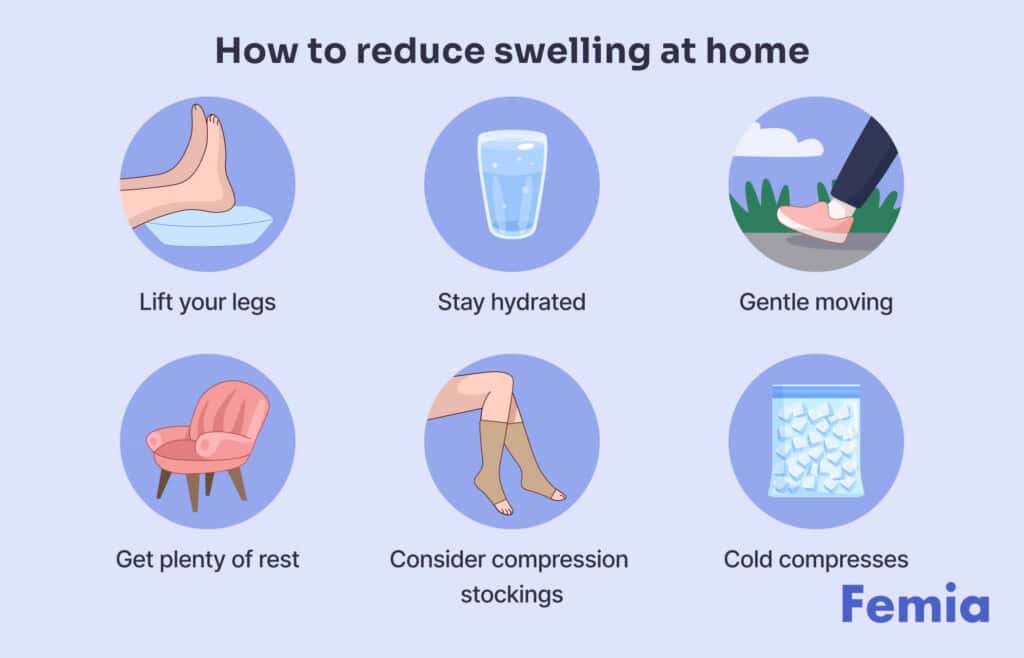
- Lift your legs. When sitting down, rest your legs on a pillow so they are raised above hip height. Gravity will help the excess fluid drain quickly.
- Stay hydrated. It might feel counterproductive, but making sure you stay hydrated will help reduce swelling. Aim to drink between 8–12 cups of water a day.
- Gentle moving. This helps your circulation and encourages your body to get rid of excess fluid. If you feel up to it, then going for a leisurely walk can help. Just remember not to start vigorous exercise until your doctor has okayed it.
- Get plenty of rest. Staying off your feet when possible can help stop the excess fluid from settling in your ankles and legs.
- Consider compression stockings. These can help improve mild swelling more quickly. They can be difficult to get on, though, so make sure you have some help.
- Cold compresses. Applying a cold compress to swollen fingers or hands can help ease swelling and make you more comfortable.
👉Find out more: Signs of ovulation after giving birth: What new moms need to know
with confidence
Femia offers personalized insights and helps you stay in control
Dietary tips:
- Watch your salt intake. Too much sodium (salt) can encourage your body to hold onto water. Your body already retains sodium during pregnancy, and eating too much salt can exacerbate this. The American College of Obstetricians and Gynecologists (ACOG) recommends keeping your sodium intake under 2,300mg a day (one teaspoon).
- Eat a balanced diet. Eating a balanced diet is the best way to keep your body nourished and fueled during this challenging time. With so much going on, it can be hard to find the time or energy to make healthy meals for yourself. Consider filling your freezer with healthy, ready-to-eat meals before your baby arrives, or ask family and friends for help with meals during those first few weeks.
Questions from Femia community
Is it normal to experience swelling in other parts of my body postpartum, like my hands or face?
Yes, postpartum swelling can occur in the hands and face and make you feel or look a little bit puffy. It shouldn’t come on suddenly or be severe or uncomfortable. Severe or sudden swelling in the hands and face should be checked out by a healthcare provider, as it can sometimes indicate a more serious underlying medical condition.
Can swelling in my feet after birth be a sign of a blood clot?
Yes, swelling can be a sign of a blood clot. If you have swelling, pain, or tenderness on just one side, then it’s possible you have a blood clot. The skin over the swollen area may also be red and warm to the touch. If you have any of these symptoms or are concerned your swelling could be due to a blood clot, seek medical attention right away. A healthcare professional will be able to determine if there is a clot and start you on treatment.
Are there any specific exercises that can help reduce my postpartum foot swelling?
Gentle exercises like walking and foot stretching can encourage circulation and help your body get rid of the excess fluid that has built up. But, before starting any exercise, it’s important to get the go-ahead from your healthcare provider and follow their recommendations.
The bottom line
Having some mild swelling after giving birth is common and usually not a cause for concern. However, it can sometimes indicate a more serious medical condition. If the swelling is severe, comes on suddenly, or is accompanied by any other worrying symptoms, then it is important to get yourself checked out by a healthcare provider urgently.
Listening to your body and seeking advice for any concerns you have will help you to safely recover from giving birth. Don’t hesitate to reach out to your healthcare provider, even if something feels minor. They’re there to help in any way you need.
References
- ACOG. “3 Conditions to Watch for After Childbirth.” ACOG, www.acog.org/womens-health/experts-and-stories/the-latest/3-conditions-to-watch-for-after-childbirth.
- Mayo Clinic. “Ankle Swelling During Pregnancy: What Helps?” Mayo Clinic, 9 July 2024, www.mayoclinic.org/healthy-lifestyle/pregnancy-week-by-week/expert-answers/swelling-during-pregnancy/faq-20058467.
- ACOG. “Cesarean Birth.” ACOG, www.acog.org/womens-health/faqs/cesarean-birth.
- Chauhan, Gaurav, and Prasanna Tadi. “Physiology, Postpartum Changes.” StatPearls – NCBI Bookshelf, 14 Nov. 2022, www.ncbi.nlm.nih.gov/books/NBK555904.
- Mayo Clinic. “Deep Vein Thrombosis (DVT) – Symptoms and Causes.” Mayo Clinic, 11 June 2022, www.mayoclinic.org/diseases-conditions/deep-vein-thrombosis/symptoms-causes/syc-20352557.
- Mayo Clinic. “Edema – Diagnosis and Treatment.” Mayo Clinic, www.mayoclinic.org/diseases-conditions/edema/diagnosis-treatment/drc-20366532#main-content.
- ACOG. “Healthy Eating.” ACOG, www.acog.org/womens-health/faqs/healthy-eating#:~:text=Sodium%20should%20be%20used%20in,teaspoon%20of%20salt%20per%20day.
- ACOG. “How Much Water Should I Drink During Pregnancy?” ACOG, www.acog.org/womens-health/experts-and-stories/ask-acog/how-much-water-should-i-drink-during-pregnancy.
- Health Information and Services. “Problems in the Week After the Birth.” Health Information and Services, 9 July 2024, info.health.nz/pregnancy-children/the-first-6-weeks/problems-in-the-week-after-the-birth#swollen-legs-1953.
- Centers for Disease Control and Prevention (CDC). “Signs and Symptoms of Urgent Maternal Warning Signs.” HEAR HER Campaign, 15 May 2024, www.cdc.gov/hearher/maternal-warning-signs/index.html.
- Soma-Pillay, Priya, et al. “Physiological Changes in Pregnancy.” Cardiovascular Journal of Southern Africa, vol. 27, no. 2, May 2016, pp. 89–94, https://doi.org/10.5830/cvja-2016-021.
- HSE.ie. “Swollen Ankles, Feet and Fingers in Pregnancy.” HSE, www2.hse.ie/conditions/swollen-ankles-feet-fingers-pregnancy.
- Wilson, Kelly, et al. Information Following Childbirth. 2016, www.qehkl.nhs.uk/Documents/Maternity%20web%20pages/Maternity/Information%20following%20childbirth%20april%2018%20(2).pdf.
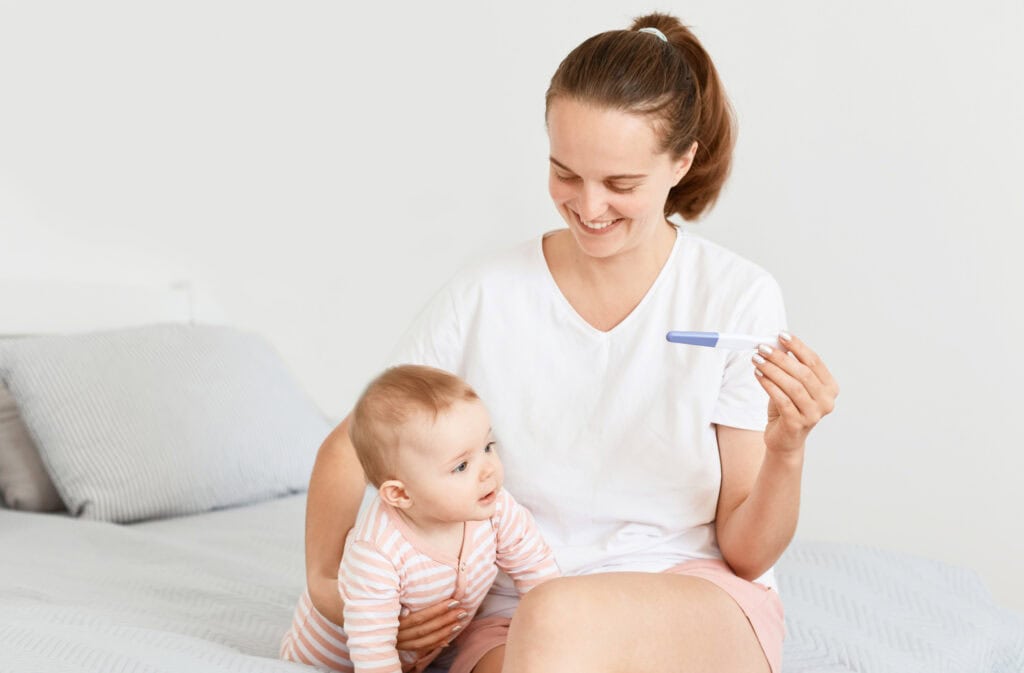
Discover 10 signs of pregnancy while breastfeeding. Learn about changes in milk supply, fatigue, and other symptoms. Expert advice for new moms from Femia.
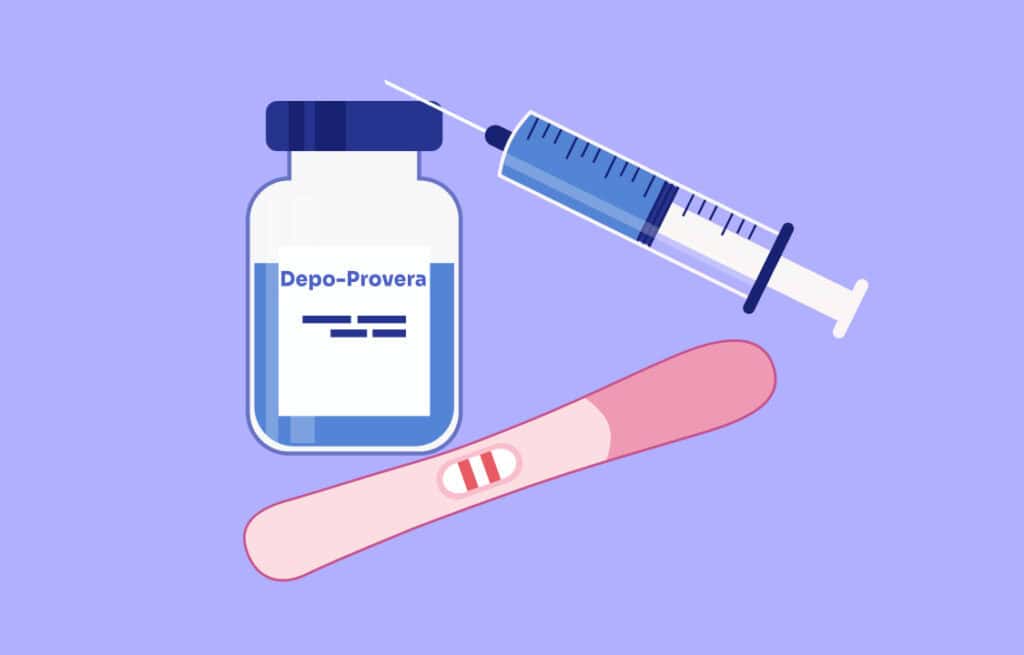
Learn about the signs of pregnancy after Depo-Provera, how long it takes to get pregnant, and tips for conceiving after stopping the birth control shot.
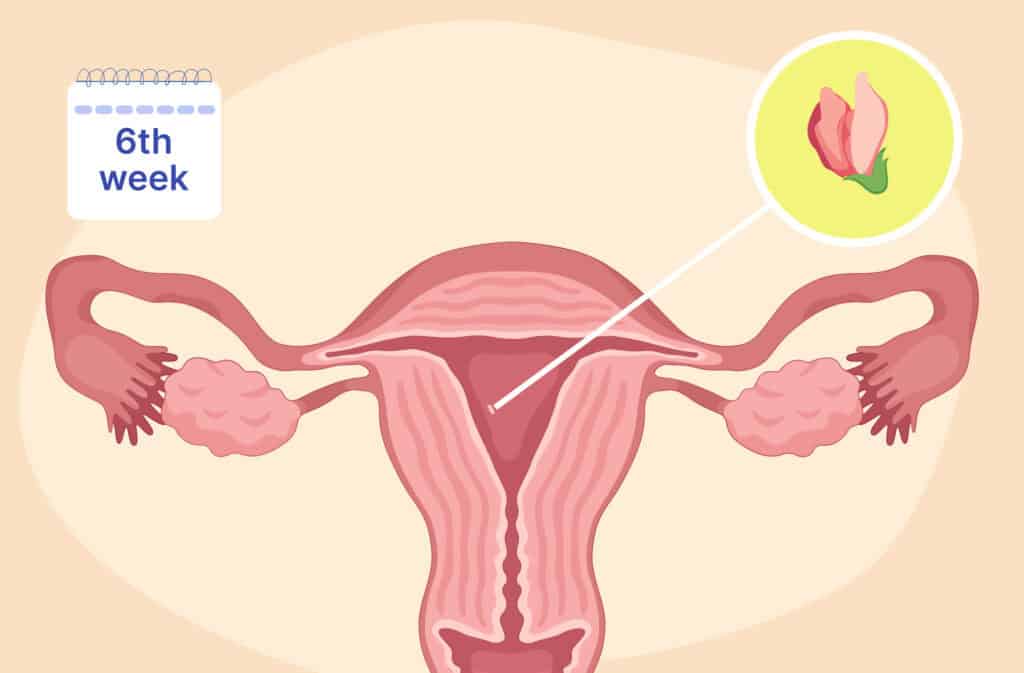
At 6 weeks pregnant, your baby is rapidly growing. Learn about week 6 symptoms, fetal development, ultrasound insights, and key tips for a healthy pregnancy.

